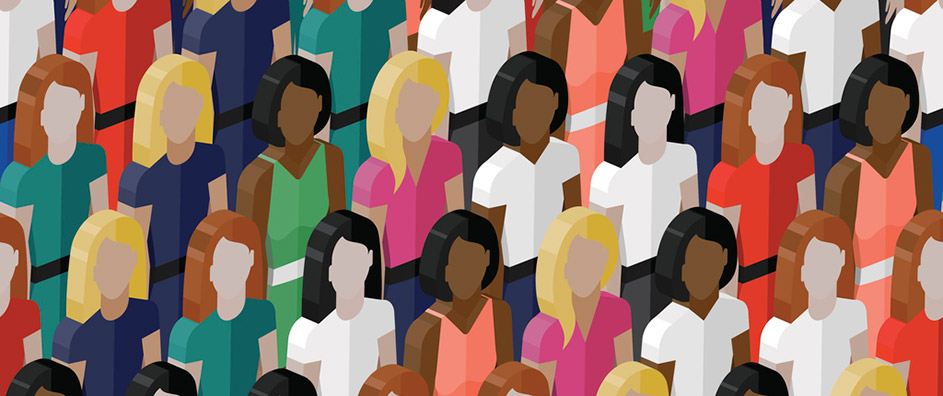In contemporary discussions surrounding gender equality, the discourse often becomes polarized, with a tendency to delineate stark lines between men and women. However, a profound transformation in the narrative is essential—a narrative that emphasizes the symbiotic relationship between the two genders. This transformation is encapsulated in Bahá’í teachings, which advocate for a holistic understanding of gender equality through the lens of building a feminist consciousness while concurrently welcoming men into the conversation.
Understanding this dual approach begins with recognizing the underpinnings of feminist consciousness, which emerges not only as a response to injustices faced by women but also as a call for a more equitable world. Building a feminist consciousness means developing an acute awareness of systemic inequalities and cultural dichotomies. This consciousness advocates for structural reforms in societal norms, thereby facilitating a more inclusive dialogue about the experiences and perspectives of diverse genders.
At the heart of Bahá’í philosophy lies the principle of unity in diversity. This axis posits that meaningful gender discourse cannot flourish in isolation; rather, it must engage both men and women in complementary roles. Feminist consciousness in the Bahá’í context transcends mere acknowledgment of women’s rights. It embodies a call to action for men to participate actively in the pursuit of gender equality, altering perceptions that often box masculinity into narrow stereotypes.
The invitation for men to join this narrative is not merely a pragmatic gesture but a transformational opportunity. The rise of a feminist consciousness operates on the premise that gender inequality harms everyone, including men. By welcoming men into the conversation, one facilitates the dismantling of toxic masculinity, which often perpetuates violent and rigid societal structures. Men, when engaged as allies, can become powerful proponents of change, articulating and championing equitable ideals in personal and professional spheres.
Crucially, the Feminist Movement within the Bahá’í framework eschews adversarial posturing. Instead, it seeks to cultivate understanding and respect between genders. This nuanced approach compels individuals to explore their shared humanity rather than their differences. Engaging in dialogue rooted in mutual respect provides fertile ground for challenging misconceptions and fostering empathy, ultimately transforming relationships across the gender spectrum.
One of the primary tenets of the Bahá’í faith is the belief in the essential equality of men and women. This foundational precept serves as an antidote to patriarchal structures that have long dictated societal norms. By instilling a robust awareness of gender equality, the Bahá’í teachings promote a shift in perspective, steering the conversation toward a collaborative vision of social justice.
To further enhance this dialogue, it is imperative to cultivate environments conducive to open and honest discourse. Workshops, community forums, and educational initiatives can serve as platforms for individuals to share their experiences and insights. These gatherings should espouse a culture of active listening, where the voices of all participants are honored, thereby facilitating an atmosphere of mutual learning. By embedding such initiatives within the fabric of community interactions, individuals can begin to grapple with the complexities of gender dynamics in sincere and meaningful ways.
Moreover, stories and narratives play an instrumental role in shaping perceptions and fostering empathy. In the context of Bahá’í teachings, sharing stories of both men and women who have transcended traditional roles can illustrate the profound impact of collaborative efforts. These vignettes not only serve to inspire but also offer tangible examples of how dismantling gender biases can result in enriched lives and stronger communities.
The call to action for men, therefore, must extend beyond mere participation; it requires a commitment to express vulnerability and a willingness to engage in self-reflection. Men are encouraged to scrutinize their own privileges and biases while also championing their partners, colleagues, and friends who may experience gender-based discrimination. This process of introspection can lead to a deeper understanding of the societal constructs that influence behaviors and expectations assigned to different genders.
Furthermore, integrating feminist consciousness into the fabric of educational curricula can help cultivate a generation that views gender equality as a normative standard rather than an aspirational goal. By fostering critical thinking and awareness from a young age, future leaders will be better equipped to challenge systemic injustices and advocate for inclusive policies that align with Bahá’í teachings of unity and equity. This systemic change is necessary for creating norms that celebrate rather than stigmatize the contributions of all genders.
Ultimately, the endeavor to build feminist consciousness while welcoming men into the discourse does not merely pave the way for enhanced gender relations; it engenders an ethos of solidarity and shared responsibility. This integrative approach creates a new paradigm where concepts of masculinity and femininity are not in opposition but instead exist as complementary forces that, when harmonized, lead to societal advancement.
In conclusion, fostering a feminist consciousness within the Bahá’í framework entails a transformative journey—one that not only acknowledges the historical injustices faced by women but also actively includes men in the conversation. As individuals embark on this collective quest, they discover new dimensions of empathy, compassion, and collaboration that promise not only to reshape relationships but also to uplift communities towards a more just and equitable future.
